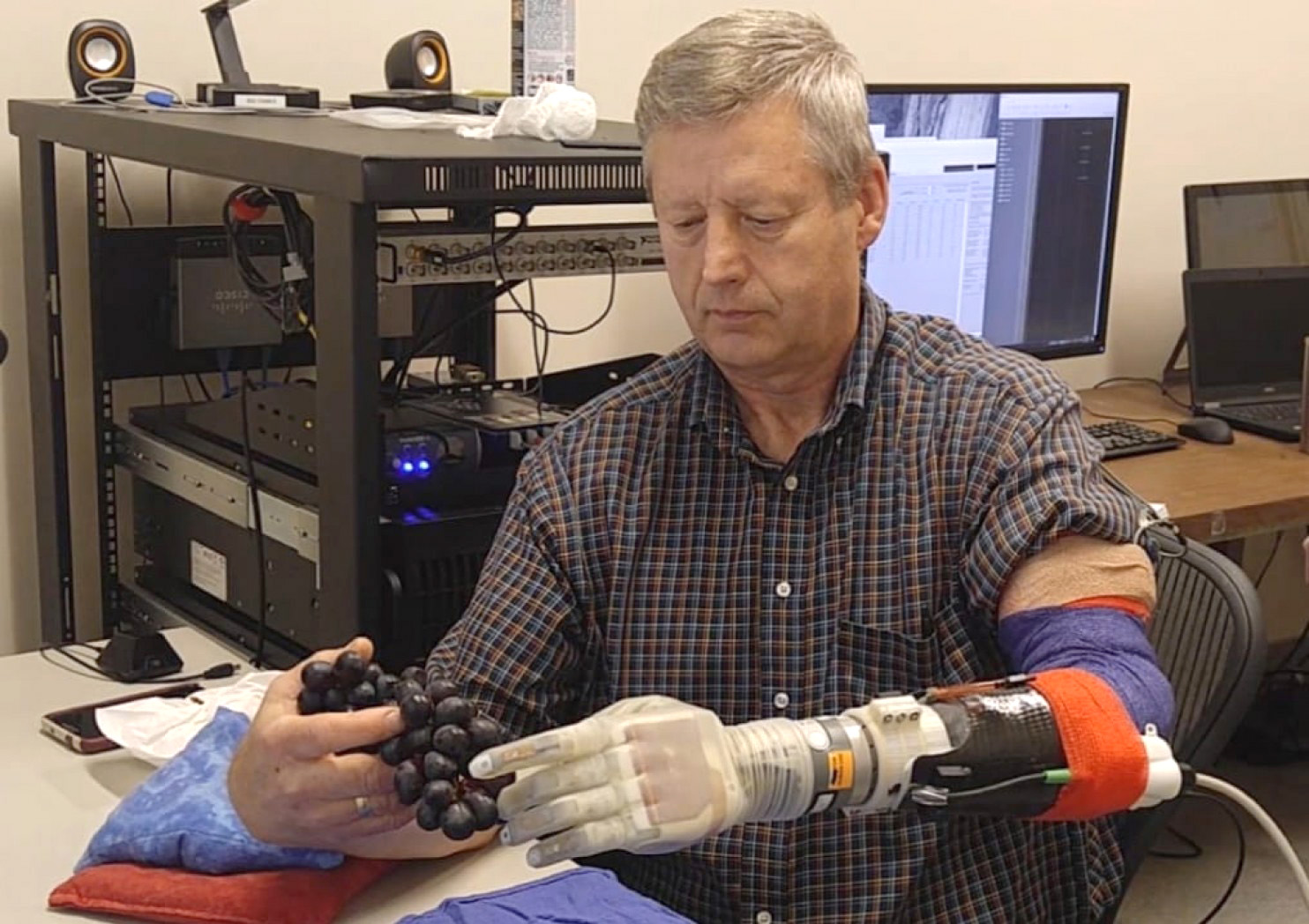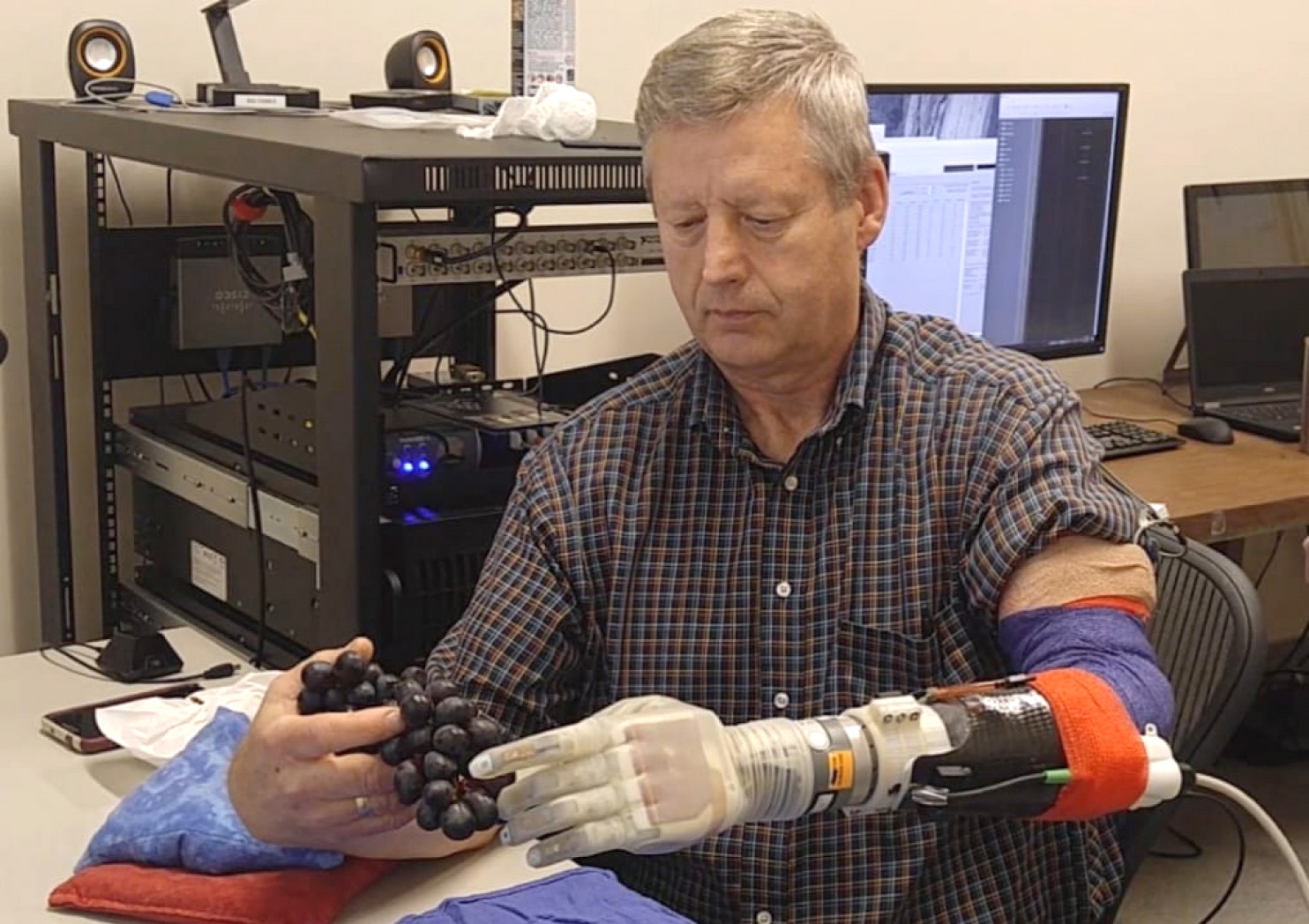This robotic hand restores amputees' sense of touch
"I know it sounds simple, but it's amazing."

A free daily email with the biggest news stories of the day – and the best features from TheWeek.com
You are now subscribed
Your newsletter sign-up was successful
"Keven Walgamott wasn't sure what to expect when scientists first hooked up what was left of his arm to a computer," said William Wan at The Washington Post. Walgamott, who had lost most of his left arm and hand 14 years earlier in an electrical accident, volunteered for an experimental project at the University of Utah, where researchers were working on a robotic arm "controlled by an amputee's own nerves." Researchers planted electrodes into Walgamott's arm nerves and muscles that sent signals to his nervous system, giving him the sensation of touch.

Doctors say "adding touch to prostheses markedly improves motor skills of amputees, compared with other robotic prostheses"; it also reduces the sensation of phantom pain. Now fitted with the fully feeling robot hand, Walgamott can pick up a grape without crushing it, and he's particularly delighted at being able to put on pillowcases. "I know it sounds simple, but it's amazing," he says.
A free daily email with the biggest news stories of the day – and the best features from TheWeek.com
The Week
Escape your echo chamber. Get the facts behind the news, plus analysis from multiple perspectives.

Sign up for The Week's Free Newsletters
From our morning news briefing to a weekly Good News Newsletter, get the best of The Week delivered directly to your inbox.
From our morning news briefing to a weekly Good News Newsletter, get the best of The Week delivered directly to your inbox.
-
 Switzerland could vote to cap its population
Switzerland could vote to cap its populationUnder the Radar Swiss People’s Party proposes referendum on radical anti-immigration measure to limit residents to 10 million
-
 Political cartoons for February 15
Political cartoons for February 15Cartoons Sunday's political cartoons include political ventriloquism, Europe in the middle, and more
-
 The broken water companies failing England and Wales
The broken water companies failing England and WalesExplainer With rising bills, deteriorating river health and a lack of investment, regulators face an uphill battle to stabilise the industry